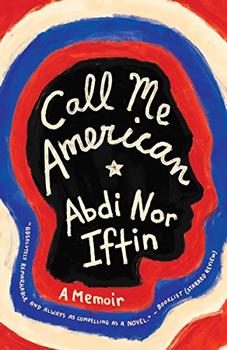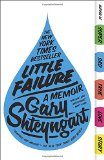Summary | Excerpt | Reviews | Beyond the book | Read-Alikes | Genres & Themes | Author Bio

Three Generations, Two Continents, and a Dinner Table (a Memoir with Recipes)
by Boris FishmanThe acclaimed author of A Replacement Life shifts between heartbreak and humor in this gorgeously told, recipe-filled memoir. A family story, an immigrant story, a love story, and an epic meal, Savage Feast explores the challenges of navigating two cultures from an unusual angle.
A revealing personal story and family memoir told through meals and recipes, Savage Feast begins with Boris's childhood in Soviet Belarus, where good food was often worth more than money. He describes the unlikely dish that brought his parents together and how years of Holocaust hunger left his grandmother so obsessed with bread that she always kept five loaves on hand. She was the stove magician and Boris' grandfather the master black marketer who supplied her, evading at least one firing squad on the way. These spoils kept Boris' family—Jews who lived under threat of discrimination and violence—provided-for and protected.
Despite its abundance, food becomes even more important in America, which Boris' family reaches after an emigration through Vienna and Rome filled with marvel, despair, and bratwurst. How to remain connected to one's roots while shedding their trauma? The ambrosial cooking of Oksana, Boris's grandfather's Ukrainian home aide, begins to show him the way. His quest takes him to a farm in the Hudson River Valley, the kitchen of a Russian restaurant on the Lower East Side, a Native American reservation in South Dakota, and back to Oksana's kitchen in Brooklyn. His relationships with women—troubled, he realizes, for reasons that go back many generations—unfold concurrently, finally bringing him, after many misadventures, to an American soulmate.
Savage Feast is Boris' tribute to food, that secret passage to an intimate conversation about identity, belonging, family, displacement, and love.
There's an at-times solemn, at-times playful, always easy rhythm to Fishman's reminisces. He wants readers to know everything he can possibly tell them about his and his family members' lives, but he wants to take his time in getting there...continued
Full Review
 (663 words)
(663 words)
(Reviewed by Rory L. Aronsky).
 Early on in Savage Feast, Boris Fishman, beginning to recount his family's exodus from the Soviet Union, states that there were 800 kinds of bread in the U.S.S.R. It's true. According to an article in the Christian Science Monitor in 1985, there is domashanya, a basic household roll; stolichniye, the bread of Moscow, and orlovsky, which combines rye and wheat flour. The list goes on from there.
Early on in Savage Feast, Boris Fishman, beginning to recount his family's exodus from the Soviet Union, states that there were 800 kinds of bread in the U.S.S.R. It's true. According to an article in the Christian Science Monitor in 1985, there is domashanya, a basic household roll; stolichniye, the bread of Moscow, and orlovsky, which combines rye and wheat flour. The list goes on from there.
But the one that loomed over all of Mother Russia, including Fishman's Belarus, was Borodinsky, which he describes as having a "dark, slightly charred top," with coriander seeds meant to resemble "grapeshot," which are small iron balls fired from a cannon. According to him, the story goes that a Russian general died at the Battle of Borodino ...

If you liked Savage Feast, try these:

by Abdi Nor Iftin
Published 2019
The incredible true story of a boy living in war-torn Somalia who escapes to America--first by way of the movies; years later, through a miraculous green card.

by Gary Shteyngart
Published 2014
A memoir of an immigrant family coming to America, as told by a lifelong misfit who forged from his imagination an essential literary voice and, against all odds, a place in the world.